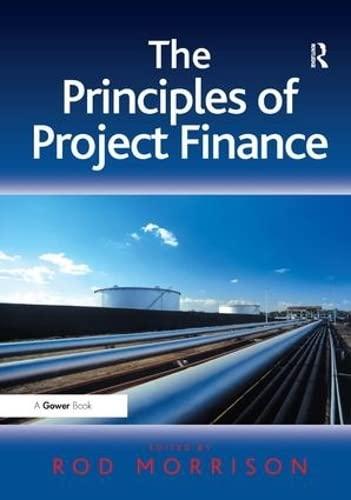Question
1) A situation that arises when a firm's equity is close to worthless, and equity holders will prefer to invest in overly risky projects with
1) A situation that arises when a firm's equity is close to worthless, and equity holders will prefer to invest in overly risky projects with a small chance of success rather than simply paying debt holders their regularly scheduled payments is known as a(n):
overinvestment problem.
long position.
underinvestment problem.
leverage problem.
2) Which of these is a situation that arises when a firm's equity is close to worthless, and equity holders will prefer to not invest in safe projects?
Overinvestment problem
Leverage problem
Long position
Underinvestment problem
3) The policy of changing the capital structure gradually over time by funding new capital projects disproportionately with the type of capital you want to increase in the capital structure is referred as:
separation principle.
active captive structure management.
passive capital structure management.
overinvestment problem.
4) If the U.S. government completely eliminated taxation at the corporate level:
we would expect to see higher debt levels since debt would become cheaper relative to equity.
we would expect to see lower debt levels since debt would no longer enjoy a tax advantage.
we would expect to no change in the capital structure since it is independent of the tax rate.
we would expect to see higher percentages of preferred stock since it enjoys a tax advantage over debt.
Step by Step Solution
There are 3 Steps involved in it
Step: 1

Get Instant Access to Expert-Tailored Solutions
See step-by-step solutions with expert insights and AI powered tools for academic success
Step: 2

Step: 3

Ace Your Homework with AI
Get the answers you need in no time with our AI-driven, step-by-step assistance
Get Started


